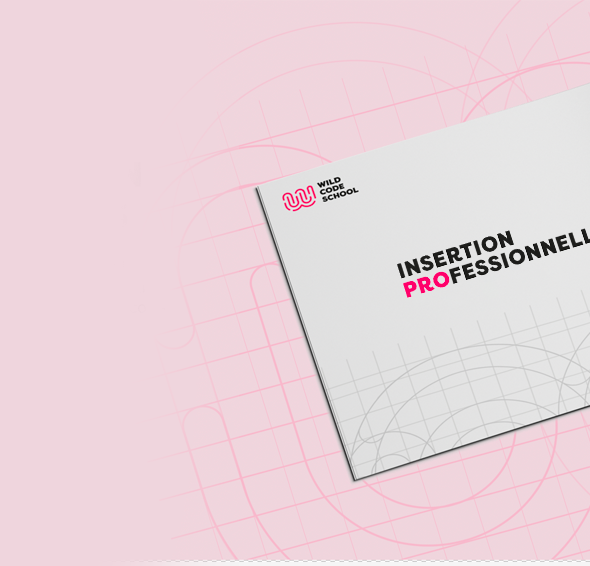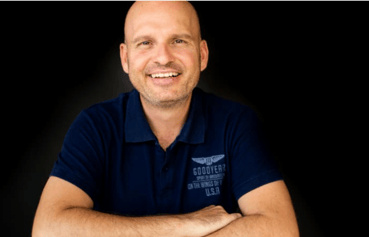From Sydney to Brussels, and from music to web development, Tim has come a long way to fulfill his passion! Here's a look back at his career as a musician, producer and sound engineer before joining the Wild Code School.
From music to web development
Hello Tim! Can you introduce yourself in a few words? What has been your journey before joining Wild Code School?
Hello! My name is Tim Coggins, I’m from Sydney Australia and moved to Brussels 3 years ago. Before starting the course, I have been working as a professional musician, producer and audio engineer. I studied at the Sydney Conservatorium of Music and play trombone, piano, modular synthesizer and bass guitar.
While music has predominantly been my focus, I have always had an interest in technology and have been using computers most of my life. When I was a teenager I started using computers to create music and also taught myself C++. I grew up around mechanical musical instruments (self-playing instruments) that my parents repair. These autonomous instruments eventually inspired me to start on a journey with the modular synthesizer (a kind of analogue computer for making sound).
Why did you choose to retrain yourself in the tech field?
Technology has always been a passion of mine. I can sit and tinker with things for hours on end. So, I don’t really see it as retraining, but instead, adding development to my list of skills. :)
The coronavirus pandemic has not been a great time for musicians. Pretty much all musical activities happen in person.
I started to get a little bored of working professionally as a producer. While there are fun, interesting and creative projects (which I’m still doing on the side!), many projects are often more about copying a style and fitting in rather than trying to create something new.
With the rise of social media in the last decade, making music was starting to feel like a mindless content factory for trying to boost someone’s popularity. I miss the days where people became popular because they made good music, not the other way round.
I think people often see music as this field that you are either 100% in or 100% out of. As I’ve gotten older, I’ve seen some of the best music from people who do it as a side project and some of the worst from ‘industry professionals’.
You're currently in our Web developer training course. How has it gone so far and what are the projects you've been working on?
Before I started the course I started playing around some web technologies such as VueJS and doing some online courses, but my fundamentals were not solid enough yet and solving simple problems would take hours. The course has strengthened my fundamentals to a point where I can get started with new technologies quickly and create the things I have in my head.
We are currently doing our third class project, which is for an Italian company called TechBricks. I’ve been working on the back end using Typescript and NestJS, which has quite the learning curve but has taught me a lot!
Apart from the class projects, I’ve also made a few music related apps in my spare time. Metronomical is a programmable metronome for practicing odd time signatures, and a scale generator to come up with new scales based on the methods of Nicolas Slonimsky. Everything can be found on my github.
Music and tech: a promising future?
Now, let's have some deep focus on your musical side! What is your take on our current music culture?
One of the things that I’ve noticed is how music seems to be becoming more homogeneous. I think it’s amazing how technology has put a virtual recording studio into anyone's hands, and how music streaming services allow anyone to listen to (almost) anything whenever they like. However, many people that I’ve talked to mention how hard it is to discover new music on platforms such as Spotify. Everyone seems a little lost and AI powered song suggestions aren’t always cutting it.
My observation is that while technology has made the process of making music more accessible to everyone, there hasn’t been recently as much of a creative or cultural revolution. An example would be slew of current artists recreating 80’s synth pop, which in its day was expensive and time consuming to create. If you compare how technology changed the way we live and how we make music, it is interesting to see that instead of using this technology to initiate creativity, it seems that the use of technology in music is often used to reproduce the sounds of yesterday faster and with less difficulty.
The other interesting development that technology brought has been the excessive ‘fixing’ of imperfections. Much in the way modern smartphones automatically smooth out your skin when taking a selfie, taking away these imperfections from music takes away the character that makes an artist unique. I’ve found when producing other artists, showing them how to keep and manipulate these imperfections can be a freeing experience that in the end sounds more authentic.
It’s also interesting to see how people are interacting with music in their daily lives. There is music everywhere now; the supermarket, train stations, working out, commuting etc. We are saturated with music in a way that no previous generation has experienced. A music fan in the 19th century would be lucky to hear their favourite symphony only once or twice in their entire lifetime. I would say that a lot of the music being made today is essentially background music. The rising popularity of 10-hour lo-fi hiphop mixtapes on YouTube reflect this. This music is only just interesting enough to stop you from turning it off, but if you actively listen there is basically nothing going on. These playlists are a good example of how music is increasingly being chosen for its function and marketability, and not due to any qualities to do with music.
With that said, I feel the future of music, as we’ve seen many times throughout history, will rebel against what came before. Like the way grunge could be seen as a rebellion against glam and hair metal, I hope to see a return to authenticity in music over the next decade.
Can you tell us more about your project?
My project is called Unethical Machines, which will release its first album later this year. The name Unethical Machines comes from my love/hate relationship with technology. I find many new advancements in technology are unanimously praised without much consideration for their negative consequences. Privacy concerns and environmental impact are two examples of this. The standardisation of literally everything is another negative when it comes to creativity, as the predictability of machines is, by its very nature, not at all human. I became interested in bending electronic instruments as a means to explore unfamiliar territory and "Unethical Machines" was born.
Having a background in improvisation, I have been trying to find a way to perform and improvise with electronic instruments for a long time.
I was first introduced to the modular synth in 2010 when I found an old Roland System 100. A modular synthesiser is an instrument which creates electronic sounds by connecting different circuits or modules together with wires. These circuits can also be fed back into themselves, creating landscapes of sound that are constantly evolving over time.
Essentially this means that it’s an instrument that has basically endless possibilities and is almost impossible to recreate a sound exactly the same twice. To me, this makes the instrument start to feel like a living organism which I can improvise with.
Here is an example of an improvisation using only the modular synthesiser. Everything was made in real time:
The album was created during the pandemic in Sydney and Brussels. One of the aims of this work was that I wanted the music to function as background music, but as you pay more attention you start to notice more and more details until you are fully immersed. The modular synth and its evolving textures play an important part here, and the other instruments such as piano and horns are brought in to tie things together.
I’m starting to plan some concerts for the summer where I will perform with the modular synth and piano. You can join the mailing list on my website if you would like to stay in touch!
Closing words: professional future and advice for future Wilders
Taking your project aside, how do you foresee your future career after your Wild Code School training?
- I like doing everything! But I would especially like to continue working with the backend.
- Ideally, at this stage I would like to join a start-up or a small team. I like the idea of being engaged with other aspects of the business and using technology to solve problems. Also, I think it allows developers to take more ownership of the codebase.
- I would like to take a look into Rust and web assembly to build audio tools that can be run well in the browser.
Thanks a lot for all your answers! What are the last tips you would give to anyone who's interested in the web development field but doesn't dare to take this path yet?
Make sure you’re the kind of person who likes sitting in front of a computer 12 hours a day! You can learn almost anything, as long as you are curious and have patience.
To go further…
If like Tim you’d like to retrain yourself in web development, apply to our Web Development Bootcamp!










